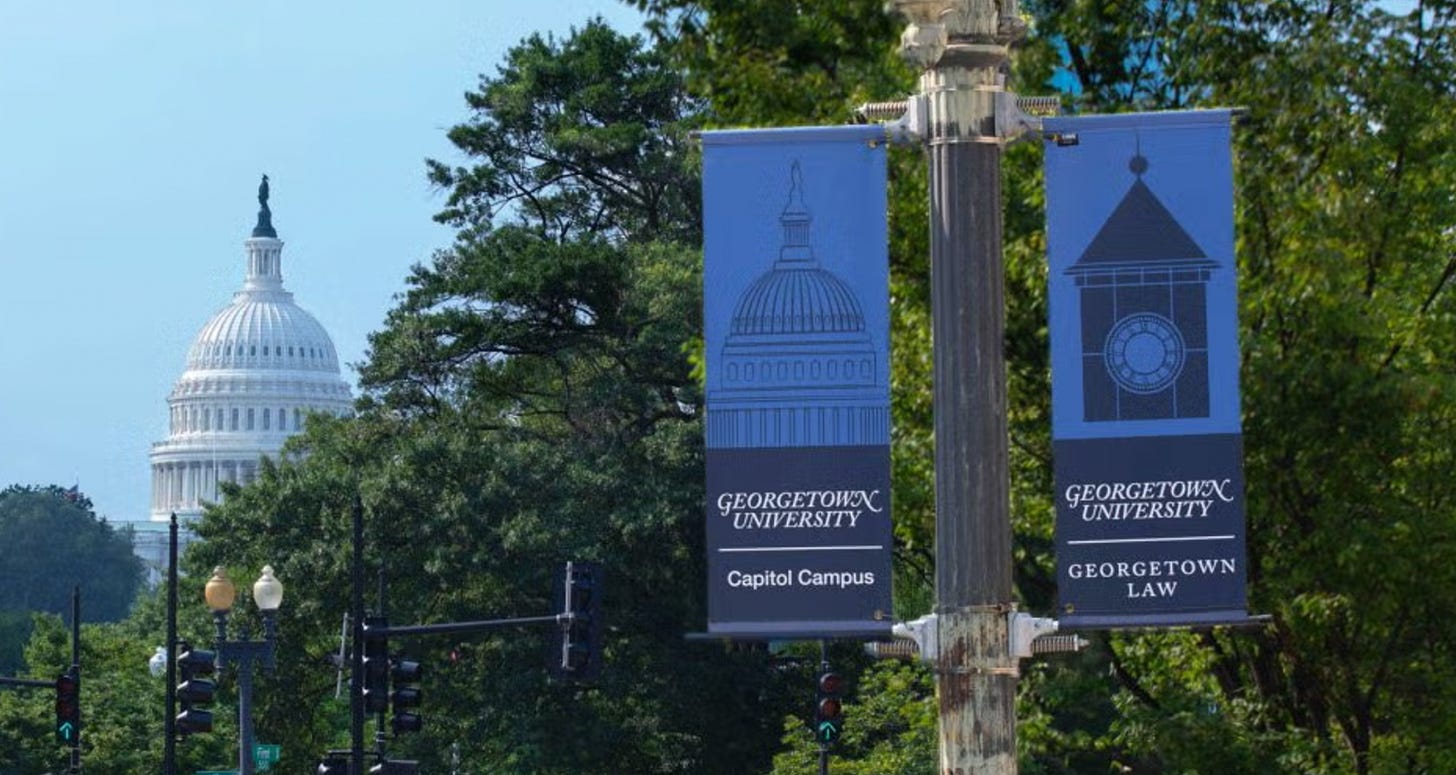After exam controversy, Georgetown law students urge policy change
Brittany Lovely says Georgetown dragged its feet on accommodating her pregnancy. She wants better for other students
After controversy over the prospect of exam-day accommodations, a pregnant Georgetown law student said Friday that her university should make a public commitment to reforming policies for pregnant students, and others needing academic accommodations at the Washington Catholic school.
Brittany Lovely, a second year law stude…

